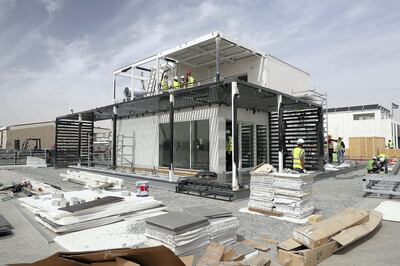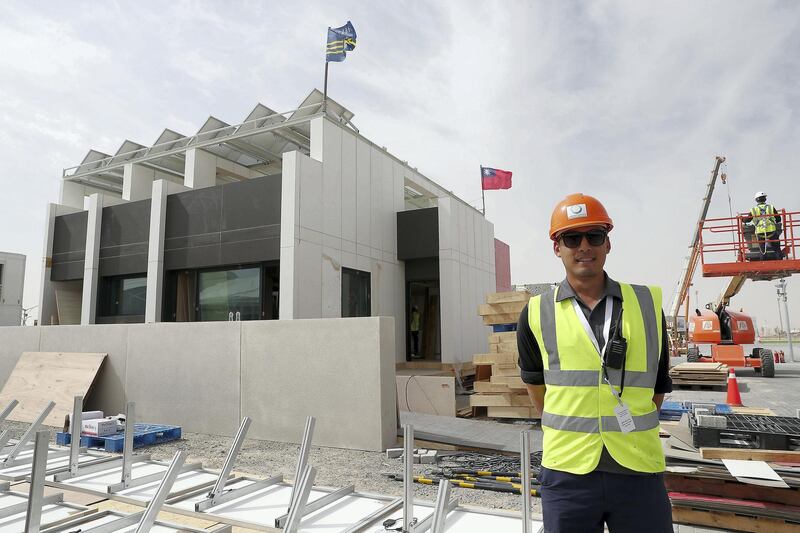Design students from around the world have arrived in Dubai to take part in an international competition to build solar-powered homes.
Known as the Solar Decathlon, the contest was established by the US government in 2002. This year, the Middle East is hosting it for the first time between November 14 until 29 at the Mohammed Bin Rashid Solar Park in Dubai.
Undergraduates from 15 universities are given two weeks to complete their projects to win more than Dh10 million in prizes.
Teams will be judged in 10 different categories, including energy efficiency, cost-effectiveness, sustainability and innovation.
“We’re working on building a house that is completely self-sustainable,” said Omer Nuwarah, team leader of American University Dubai.
“Everybody knows that energy sources like petrol and fossil fuels are coming to an end and we have to look ahead to save the mother Earth.
“At the same time it [their project] has to be functional for people to live in.”

Vittorino Belpolita, assistant professor of architecture and engineering at the University of Sharjah, is overseeing his team’s project.
Called the Know Howse, the design makes creative use of available space with sliding partitions.
“This is a house built by Emiratis for Emiratis,” he said. “We want it to be an educational project that makes younger generations aware of their responsibilities.
“Small houses don’t always suit the habits of Emirati families, such as the segregation of men and women when guests come around.
“That’s why we make the most of the space with sliding partitions."
Mr Belpolita said the project also had an automated control system that allows communication with the occupant.
“It's not a case of making the homeowner lazy by having them sitting down controlling everything from a tablet,” he said.
“The house is communicating information back to them about their levels of energy consumption.”
Clayton McDowell, project manager on the team from the University of Wollongong, Australia, said the design of their home — which they have named the Desert Rose — was focused on people with disabilities.
“It’s a little bit different in that it’s not just about being sustainable,” said Mr McDowell.
_______________
Read more:
22 universities to compete in Dh10m solar energy competition
How making solar cells in the UAE could boost the renewable energy sector
UAE looks to create hundreds of thousands of jobs in renewable sector
_______________
“We are building Desert Rose to help improve the lives of people with disabilities.
“We built a house that actually ages with people and assists them as they grow older.”
The house incorporates a number of features to cater specifically for people suffering from dementia. “One of the key things for people suffering from dementia is line of sight,” he said. “All the colour selections have been chosen to ease navigation and we have an oven that opens sideways to ease wheelchair access.”
Mr McDowell said they faced some major challenges when trying to integrate cultures of the Middle East and Australia.
“In the Middle East, privacy becomes more important the deeper you go into the home,” he said.
“We have had to balance that with the need to provide clear lines of sight for people who have dementia.”
Shao-Ling Huang, 28, a student from National Chiao Tung University in Taiwan, said his team's project aimed to breathe life into rundown cities.
“A lot of young people are moving out of old neighbourhoods because they are starting to decline,” he said.
“We want to make these old towns alive again. We tried to make a prototype that can fit into any city in the world.
“That meant we had to make a universal space that was sustainable and could be used as a business premises such as a barber shop or cafes as well as a home."







